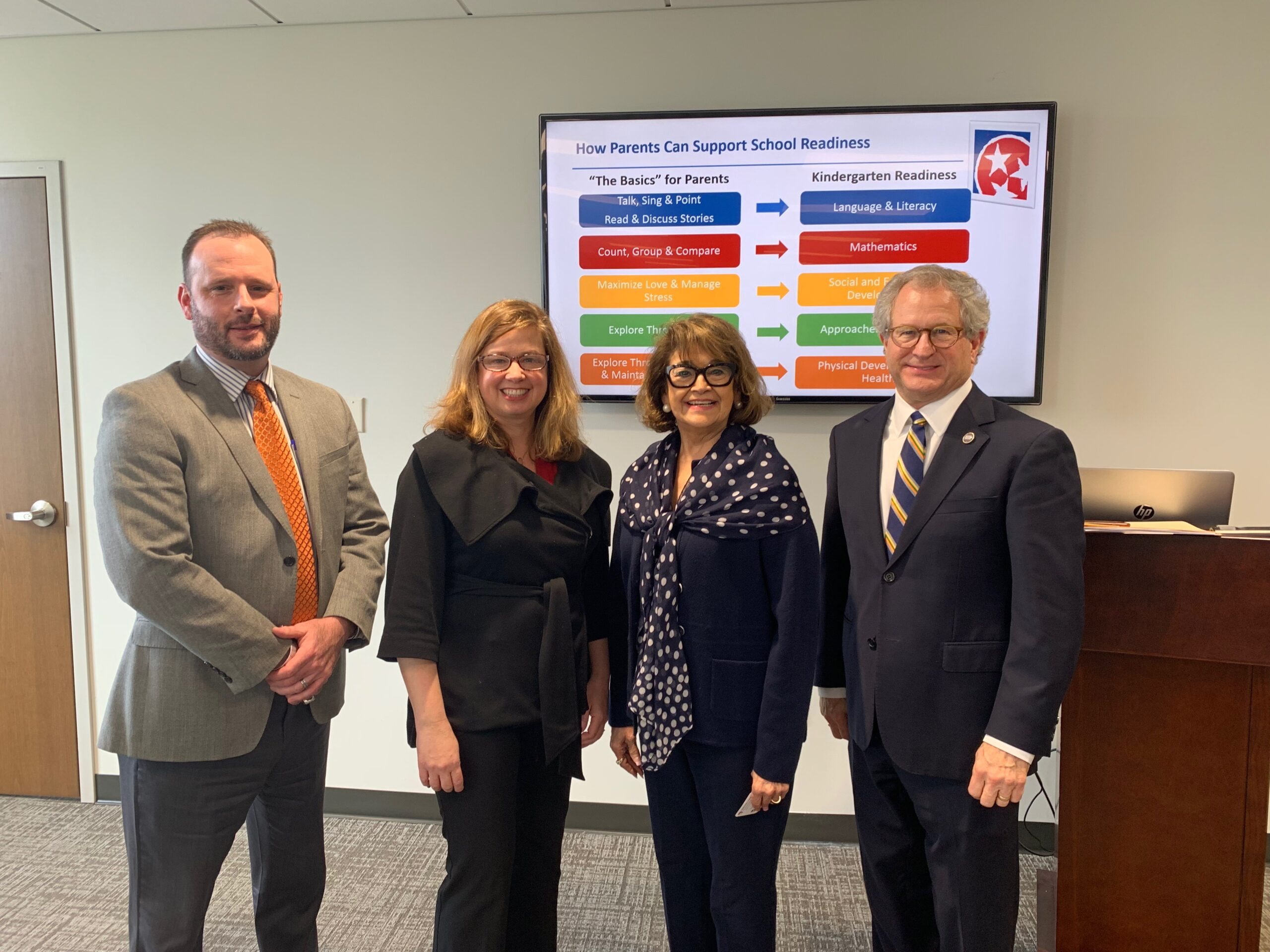
When a child shows up on the doorstep of a Tennessee school for the first time, there are many factors already at play that will influence how that child will perform. In Chattanooga, a diverse group of about 40 civic organizations have banded together in a community-wide campaign to raise awareness on early childhood development and make get children be school-ready on day one.
The Chattanooga Basics are five simple ways that families can help their children get off to the right start. The five approaches are designed to nurture growth of physical, social and emotional development for Chattanooga children so that they’re ready to be successful learners in kindergarten and beyond:
• Count, group and compare
• Read and discuss stories
• Talk, sing and point
• Explore through movement and play; and
• Maximize love and manage stress
“We’re focused on children ages zero to five by promoting a simple way for parents to interact with their children to develop cognitive growth,” said Dr. Jared Bigham, former executive director of Chattanooga 2.0, now with the Tennessee Chamber of Commerce & Industry.
Bigham showcased the Chattanooga Basics campaign in the February 21 Tennessee General Assembly Early Education Caucus (EEC) meeting that focused on school readiness.
Running what Bigham describes as a “saturation campaign,” Chattanooga 2.0’s outreach “started in the center of the urban core, going block to block, to barbershops, beauty salons, churches, business, health centers. It will keep going until we cover all of Hamilton County.”
The 40 civic stakeholders that include nonprofits, health providers, educators and business, began meeting every week. The campaign is visible everywhere – in print brochures, in videos available online and on mobile devices, and in organized outreach sessions with small and large groups of parents. They run a summer accelerated curriculum “Camp K” for kids who missed pre-k.
Our own TQEE Policy Director and early education expert, Lisa Wiltshire, says that this kind of awareness about development through an accessible program like “Five to Thrive” is crucial.
“The work that is happening with Chattanooga 2.0 is significant because they’re taking the definition of what it means for a child to be kindergarten ready and giving parents a list of things that they can do to prepare their child for success in school,” she says.
“They have turned an elusive idea – readiness – into five easy – but important – steps parents, families, and caregivers can take to help children learn and grow.”
Senate Education Chairman Dolores Gresham (R-Somerville), an EEC member, liked what she heard about Chattanooga Basics and indicated it could be a guide for other Tennessee communities. “This is the business of changing culture so that our children are successful in the long run,” she said. “We are beginning to see the enormity of what we are dealing with in our state. The long-term commitment for this is absolutely necessary.”
Two years ago, Chattanooga leaders began to study why the community’s high school and college grads were failing to meet the skill demands of area industry. The group conducted 3,600 interviews of local with teachers, parents, businesses and faith leaders to understand the problem. They observed a consistent student achievement deficiency throughout the learning continuum – that graduating high school students were not ready for college, that middle school schoolers were not ready for high school and elementary students were not ready for middle school.
“We found that the performance gap began in kindergarten,” Bigham said. “Children began behind and were caught in a constant cycle of catch up. Our approach is that we will get them ready for kindergarten so that they can remain on track.”
National data is clear: once students fall behind in third grade, they tend to stay behind or fall further in subsequent years. And unfortunately, the Chattanooga condition also mirrors TNReady assessment findings that most Tennessee students are not proficient in reading and math.
Reversing that trend has become a priority backed by state leaders in communities across Tennessee who recognize that improving early grade outcomes is the key to long-term learning success. Chattanooga’s ambitious outreach to win broader devotion to effective early development practices is a model that will produce results there and provide a model that other cities can follow.





